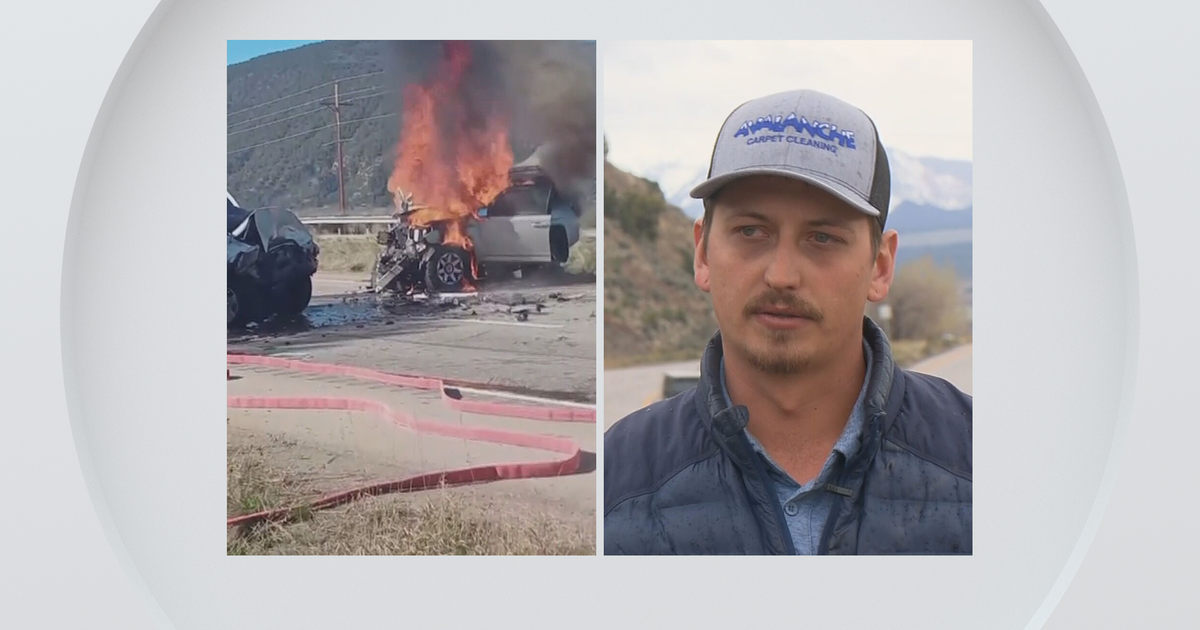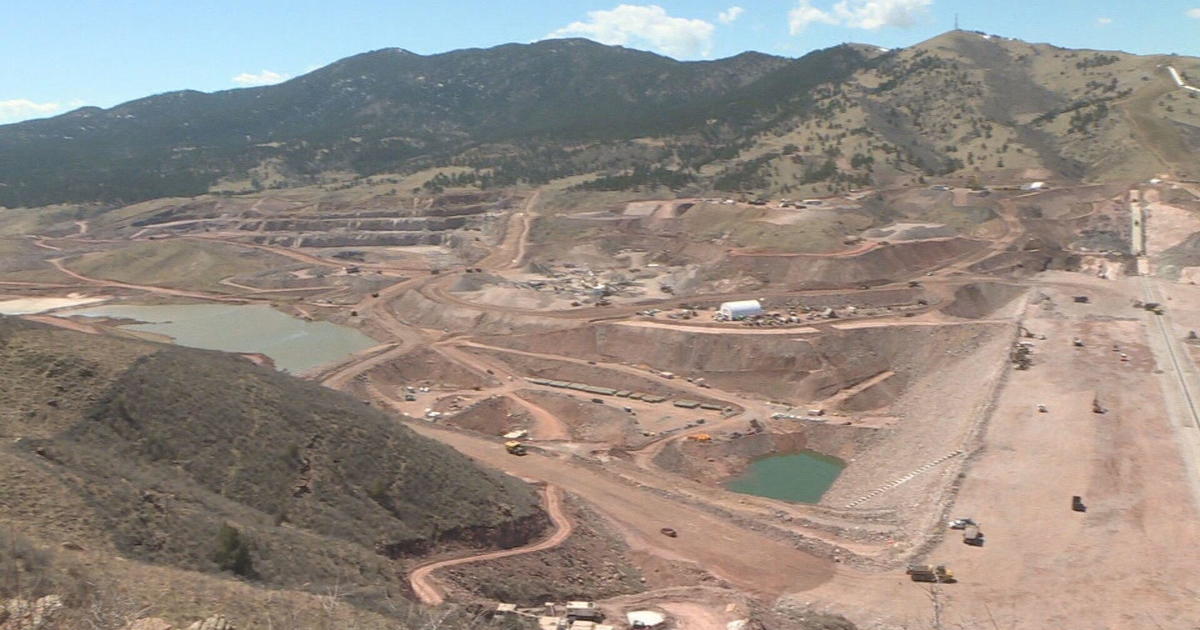Federal Spending Plan Could Thrust Colorado Roadways & Transportation Infrastructure Forward
DENVER (CBS4) - President Joe Biden laid out the first part of his $2 trillion plan to rebuild the nation's roads, bridges, water systems and technology. Colorado could see infrastructure improvements under the changes.
Biden's American Jobs Plan would be the most expensive ever if passed by the federal government. The idea is similar to birth of the interstate highway system or the launch of the space program.
The plan would spend $621 billion to repair roads, bridges and airports and would aim to modernize 20,000 miles of highways and build 500,000 electric vehicle charging stations by 2030.
The president would raise tax rates from 21% to 28%, but proponents say that will not affect anyone making less than $400,000 a year.
Sen. Michael Bennet applauded the plan.
"Communities across America -- from rural counties to cities -- will benefit from the president's plan. I look forward to working with the administration and Congress to make this ambitious and much-needed infrastructure investment."
Bennet outlined several areas in which he says Colorado would benefit from the plan:
- Investing in Restoration and Resilience: The American Jobs Plan calls for $50 billion in investments to improve the resilience of land and water resources, safeguard critical infrastructure, and defend vulnerable communities. The plan includes Bennet's outdoor restoration proposal to invest in projects that reduce wildfire risk and improve forest health by empowering local leaders, and is consistent with priorities identified by Colorado leaders who developed and presented the Western Climate Resilience Framework to Bennet earlier this year.
- Rural Infrastructure: Biden's plan proposes $5 billion for a new Rural Partnership Program to assist rural regions with economic and infrastructure planning and development. This proposal is modeled after Bennet's RESILIENT Act, which proposes a partnership office to empower rural communities to upgrade their infrastructure by expanding technical assistance, strengthening local capacity, providing more flexible federal funding to rural areas, and simplifying the federal bureaucracy.
- High-Speed Broadband: Biden's plan aligns with Bennet's Broadband Reform and Investment to Drive Growth in the Economy (BRIDGE) Act by prioritizing future-proof networks, lifting restrictions on municipal broadband networks, and providing them with funding. It also provides a set-aside for broadband deployment on tribal lands. The plan also aligns with Bennet's Broadband Transparency and Accountability Act by requiring internet service providers to disclose prices charged.
- Drought Resilience: Biden's plan proposes funding for western drought resilience efforts through investments in water efficiency and recycling, tribal water settlements, and dam safety. Last week, Bennet led a group of western Senators asking Biden to include western water priorities in his infrastructure proposal. As a member of the Senate Committee on Agriculture, Nutrition, and Forestry, Bennet has long worked to invest in western drought resilience.
- Cleaning Up Our Land and Water: Biden's plan calls for an up-front investment of $16 billion to plug orphan wells and restore and reclaim abandoned coal, hardrock, and uranium mines. This proposal aligns with Bennet's Oil and Gas Bonding Reform and Orphaned Well Remediation Act, which would create good-paying jobs and reduce methane emissions by plugging orphaned oil and gas wells, and Bennet's outdoor restoration legislation that supports locally-led reclamation and remediation efforts.
- Disaster Resilience: Biden's plan calls for a bipartisan tax credit to help families and small businesses invest in disaster resilience, in line with Bennet's and U.S. Senator Bill Cassidy (R-La.)'s SHELTER Act.
- Civilian Climate Corps: Biden's plan calls for a new Civilian Climate Corps to conserve public lands and waters and strengthen resilience. Bennet's outdoor restoration legislation would provide $40 billion in flexible funding to land management agencies to support the launch of a civilian climate corps. Bennet has previously worked to support conservation corps through his 21st Century Conservation Service Corps Act with former U.S. Senator John McCain (R-Ariz.) that passed in 2019.
- PFAS Funding: Biden's plan includes $10 billion to monitor and remediate PFAS in drinking water. Bennet has repeatedly pushed for more resources to address the health, cleanup, and reimbursement issues associated with PFAS contamination of drinking water in Colorado.
- National Institute of Standards and Technology (NIST) Funding: Biden's plan calls for a $14 billion investment in NIST, which has laboratories in Boulder, to promote new technologies and strengthen our future competitiveness.
The second part of the president's plan, called the American Family Plan, focuses on childcare, education infrastructure, paid family leave and health care. That part of the plan will be unveiled later.




